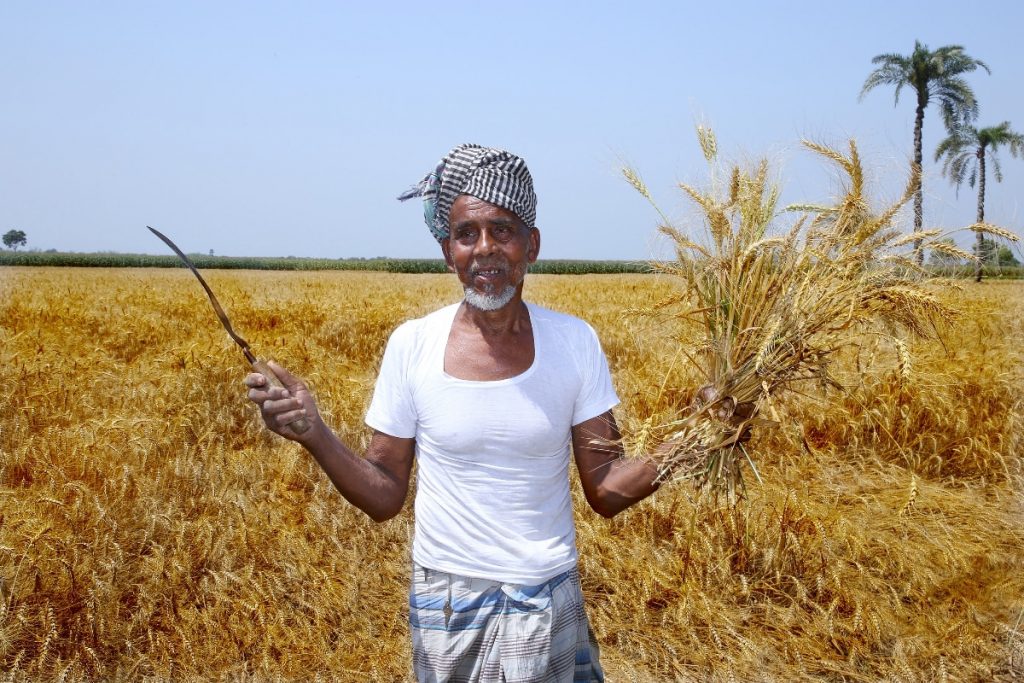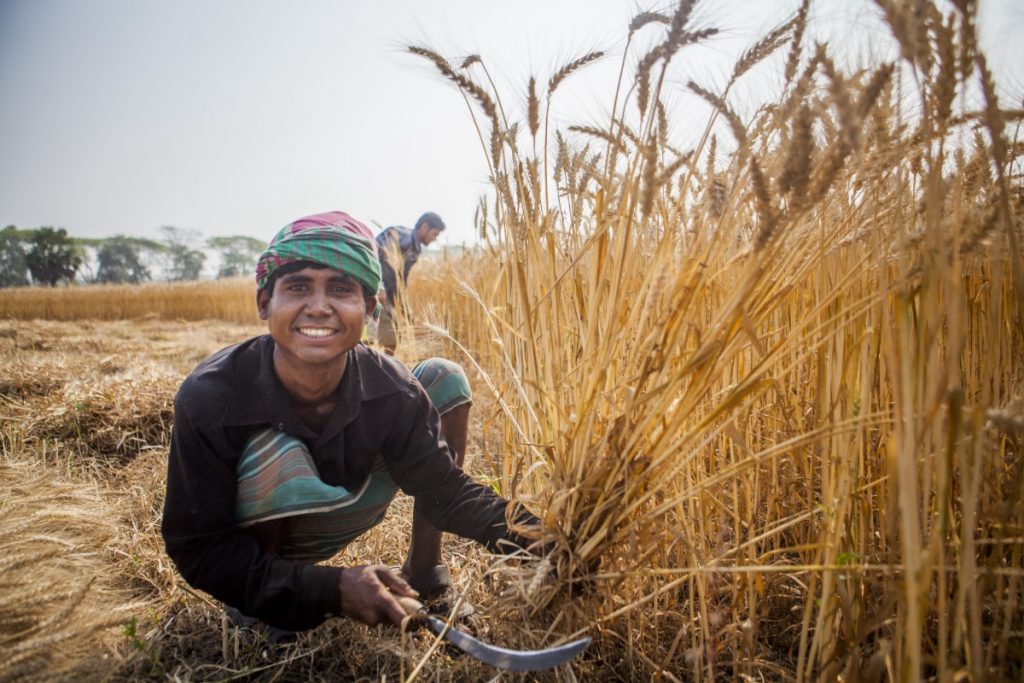CSISA Helps Farmers Beat the Heat By Planting Crops Early in Bangladesh
Beating the Heat By Planting Early in Bangladesh
Farmers in Bangladesh escape the risk of heat stress with new planting strategies.
Wheat is the second most widely grown and consumed crop by smallholder farmers in South Asia. But it is increasingly under threat from heat stress. Muhammad Jahidul Islam, a wheat farmer from Borobari, the Jhenaidah District of Bangladesh, knows all too well the impact that heat can have on people’s daily lives.
“Rising temperatures cause significant damage to the grains, especially during the maturity period before harvesting,” Islam said.

In the past, farmers like Islam did not have access to the information or tools necessary to successfully manage their crops in this changing environment.
With support from Feed the Future and the Bill and Melinda Gates Foundation, the Cereal Systems Initiative for South Asia (CSISA) works to build farmers’ resilience to these types of stressors. CSISA helps wheat farmers by raising awareness of the benefits of planting wheat early — which advances the maturity date of the crop and allows farmers to escape the risk of heat spells and late season heat stress.
CSISA is building farmers’ resilience by researching the benefits of planting earlier in the season and working with partners to scale-up effective agricultural practices that are easy for farmers to implement.
For example, research indicates that for each day a farmer delays planting, yields decline by 1 to 2 percent. A two-week delay in planting can seriously undermine farmers’ resilience as it can cause a yield loss of about 15 percent.
With this important information in hand, CSISA needed a way to share it with farmers. With hundreds of millions of smallholder farmers in South Asia, conventional trainings, such as extension services, are not always the best way to reach this large and widespread of an audience. So, to increase awareness of the benefits of planning wheat early among farmers, CSISA uses videos and infographics to share information with them.
In 2015, in partnership with the Agricultural Advisory Society, an NGO that supports grassroots farmers’ education in Bangladesh, CSISA led rural video campaigns to inform farmers of the benefits of the early wheat sowing in 16 districts across Bangladesh.
More than 110,000 farmers attended public village screenings and question-and-answer sessions featuring training videos produced by CSISA. CSISA also worked with public and private sector partners to distribute another 80,000 infographic leaflets, which highlighted the benefits of early wheat planting and provided instructions on how to do it.

“I have started planting the latest variety of wheat early, which has brought me tremendous results in production as well as in income,” Islam said.
“Not only did these videos help farmers learn why resilience to weather stressors is important, but [farmers] simultaneously learned how to tactically save the crops from heat stress through early planting,” said Muhammad Harun-Ar-Rashid, CSISA collaborator and director of the Agricultural Advisory Society. “Once farmers apply the knowledge from this visual learning experience in the field, it helps them prepare for and take necessary precautions for any adverse situation that may affect wheat yields — which in turn helps build resilience.”
Since 2015, nearly 50,000 farmers like Islam across Bangladesh have successfully advanced their wheat planting dates on nearly 15,000 hectares.
CSISA was established in 2009 to promote durable change in South Asia’s cereal-based cropping systems. Operating in rural innovation hubs in Bangladesh, India and Nepal, CSISA works to increase the adoption of various resource-conserving and climate-resilient technologies. With support from partners like Feed the Future, CSISA aims to reach 8 million farmers by the end of 2020 to improve their access to market information and enterprise development. The project is led by the International Maize and Wheat Improvement Center and implemented jointly with the International Food Policy Research Institute and the International Rice Research Institute
